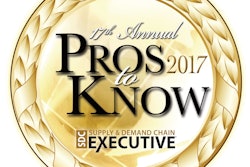
RangeMe, an online platform that streamlines new product discovery between product suppliers and retailers, released its first ever buyer trends report for the retail industry.
In consumer packaged goods (CPG), understanding what consumers want and what buyers need can be a time-consuming and exhaustive process. RangeMe took on that task with RangeMe Insights, an easy-to-consume snapshot of what’s trending in the industry, what buyers need to know and more.
This inaugural edition of RangeMe Insights looked at the actions of thousands of their buyers on the platform over the past year to discern what’s hot, what’s not, what the industry can expect in 2017 and what suppliers need to succeed in the coming year. This look at industry trends is a cardinal piece that should be an integral part of any marketer’s plan as it breaks down the actions into four distinct divisions: company sizes, certifications, state production and leading categories.
“Consumers today want innovation, they want specificity and they want to know that their preferred retailer has the product they want when they need it,” said Nicky Jackson, founder and CEO of RangeMe. “A savvy buyer is in tune with that and these insights show just how that’s impacting CPG today.”
One of the most dominant trends revealed in the report is an overwhelming majority of products garnering interest from retail buyers are supplied by companies with less than $2 million in revenue. This further reinforces the major shift to smaller brands by retailers in all categories.
RangeMe Insights also provides a view of the most prolific areas for new products across the country. Knowing where emerging brands are growing can help retailers expand their locally produced offerings.
Understanding the insights that are shaping the CPG industry is necessary for buyers to best meet consumer needs. Having that optimal differentiated product mix builds a loyal customer base and keeps customers—and retailers—happy.
The San Francisco-based retail technology company currently drives new product sourcing for major retailers, including Target, Whole Foods Market, Ahold USA, Sephora and Petco.
















